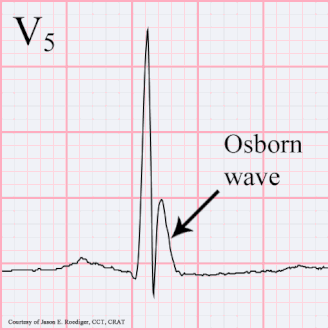Hypercalcaemia
Editor-In-Chief: Prab R Tumpati, MD
Obesity, Sleep & Internal medicine
Founder, WikiMD Wellnesspedia &
W8MD medical weight loss NYC and sleep center NYC
| Hypercalcaemia | |
|---|---|

| |
| Synonyms | Hypercalcemia |
| Pronounce | N/A |
| Specialty | N/A |
| Symptoms | Nausea, vomiting, abdominal pain, muscle weakness, confusion, fatigue |
| Complications | Kidney stones, osteoporosis, cardiac arrhythmias, renal failure |
| Onset | Can be acute or chronic |
| Duration | Varies depending on cause |
| Types | N/A |
| Causes | Hyperparathyroidism, cancer, sarcoidosis, vitamin D intoxication, medications |
| Risks | Dehydration, immobility, family history |
| Diagnosis | Blood test showing elevated calcium levels |
| Differential diagnosis | Hyperthyroidism, adrenal insufficiency, multiple myeloma |
| Prevention | Adequate hydration, monitoring in at-risk individuals |
| Treatment | IV fluids, bisphosphonates, calcitonin, dialysis |
| Medication | N/A |
| Prognosis | Depends on underlying cause and treatment |
| Frequency | Common in hospitalized patients |
| Deaths | N/A |
Hypercalcaemia is a condition characterized by an abnormally high level of calcium in the blood. It is most commonly a result of overactive parathyroid glands. Other causes include cancer, certain medications, and excessive intake of vitamin D or calcium.
Causes
Hypercalcaemia can be caused by various conditions, including:
- Hyperparathyroidism: This is the most common cause of hypercalcaemia. The parathyroid glands produce too much parathyroid hormone, which leads to increased levels of calcium in the blood.
- Cancer: Certain types of cancer can cause hypercalcaemia, including lung cancer, breast cancer, and multiple myeloma.
- Medications: Some medications can cause hypercalcaemia, such as lithium and certain diuretics.
- Vitamin D or calcium overdose: Consuming excessive amounts of vitamin D or calcium can lead to hypercalcaemia.
Symptoms
The symptoms of hypercalcaemia can vary depending on the severity of the condition. They may include:
- Fatigue
- Nausea and vomiting
- Constipation
- Excessive thirst and frequent urination
- Confusion or memory loss
- Muscle weakness
- Bone pain
Diagnosis
Hypercalcaemia is typically diagnosed through a blood test that measures the level of calcium in the blood. Additional tests may be performed to determine the underlying cause of the condition.
Treatment
Treatment for hypercalcaemia depends on the underlying cause and the severity of the condition. It may include:
- Intravenous fluids: This can help to lower calcium levels and prevent dehydration.
- Medications: Certain medications can help to lower calcium levels, such as bisphosphonates and calcitonin.
- Surgery: In some cases, surgery may be necessary to remove the overactive parathyroid glands.
See also
Transform your life with W8MD's budget GLP-1 injections from $125.
W8MD offers a medical weight loss program to lose weight in Philadelphia. Our physician-supervised medical weight loss provides:
- Most insurances accepted or discounted self-pay rates. We will obtain insurance prior authorizations if needed.
- Generic GLP1 weight loss injections from $125 for the starting dose.
- Also offer prescription weight loss medications including Phentermine, Qsymia, Diethylpropion, Contrave etc.
NYC weight loss doctor appointments
Start your NYC weight loss journey today at our NYC medical weight loss and Philadelphia medical weight loss clinics.
- Call 718-946-5500 to lose weight in NYC or for medical weight loss in Philadelphia 215-676-2334.
- Tags:NYC medical weight loss, Philadelphia lose weight Zepbound NYC, Budget GLP1 weight loss injections, Wegovy Philadelphia, Wegovy NYC, Philadelphia medical weight loss, Brookly weight loss and Wegovy NYC
|
WikiMD's Wellness Encyclopedia |
| Let Food Be Thy Medicine Medicine Thy Food - Hippocrates |
Medical Disclaimer: WikiMD is not a substitute for professional medical advice. The information on WikiMD is provided as an information resource only, may be incorrect, outdated or misleading, and is not to be used or relied on for any diagnostic or treatment purposes. Please consult your health care provider before making any healthcare decisions or for guidance about a specific medical condition. WikiMD expressly disclaims responsibility, and shall have no liability, for any damages, loss, injury, or liability whatsoever suffered as a result of your reliance on the information contained in this site. By visiting this site you agree to the foregoing terms and conditions, which may from time to time be changed or supplemented by WikiMD. If you do not agree to the foregoing terms and conditions, you should not enter or use this site. See full disclaimer.
Credits:Most images are courtesy of Wikimedia commons, and templates, categories Wikipedia, licensed under CC BY SA or similar.
Contributors: Prab R. Tumpati, MD



